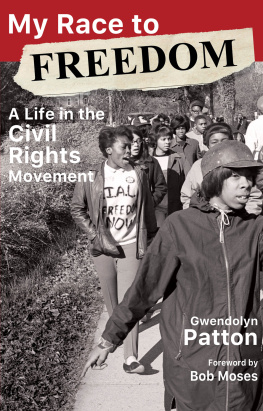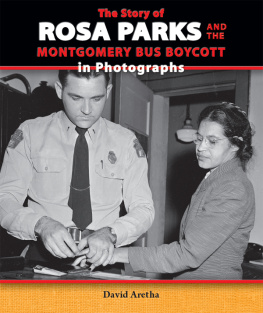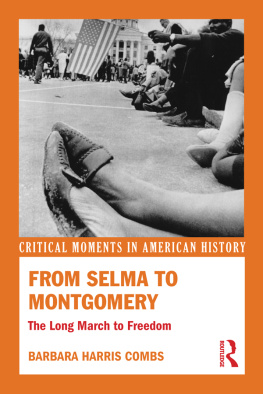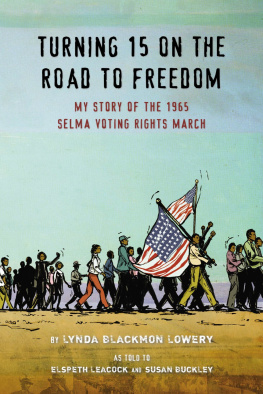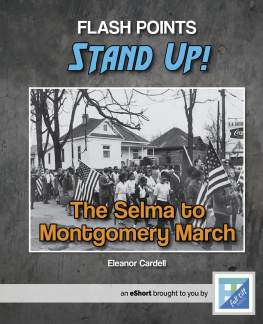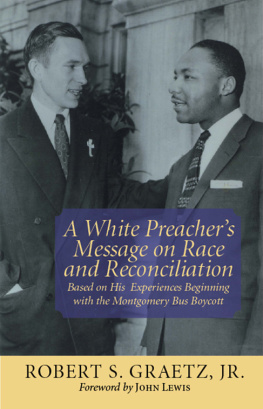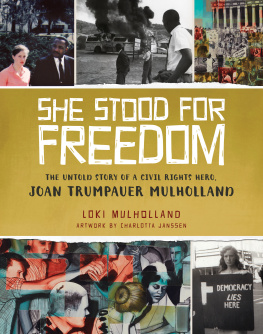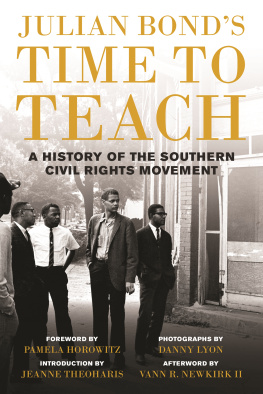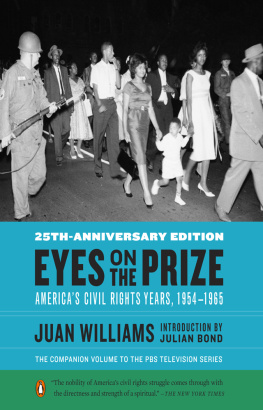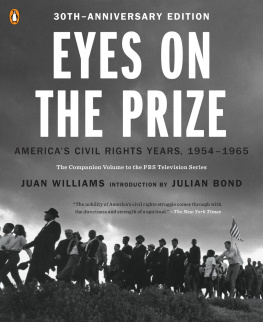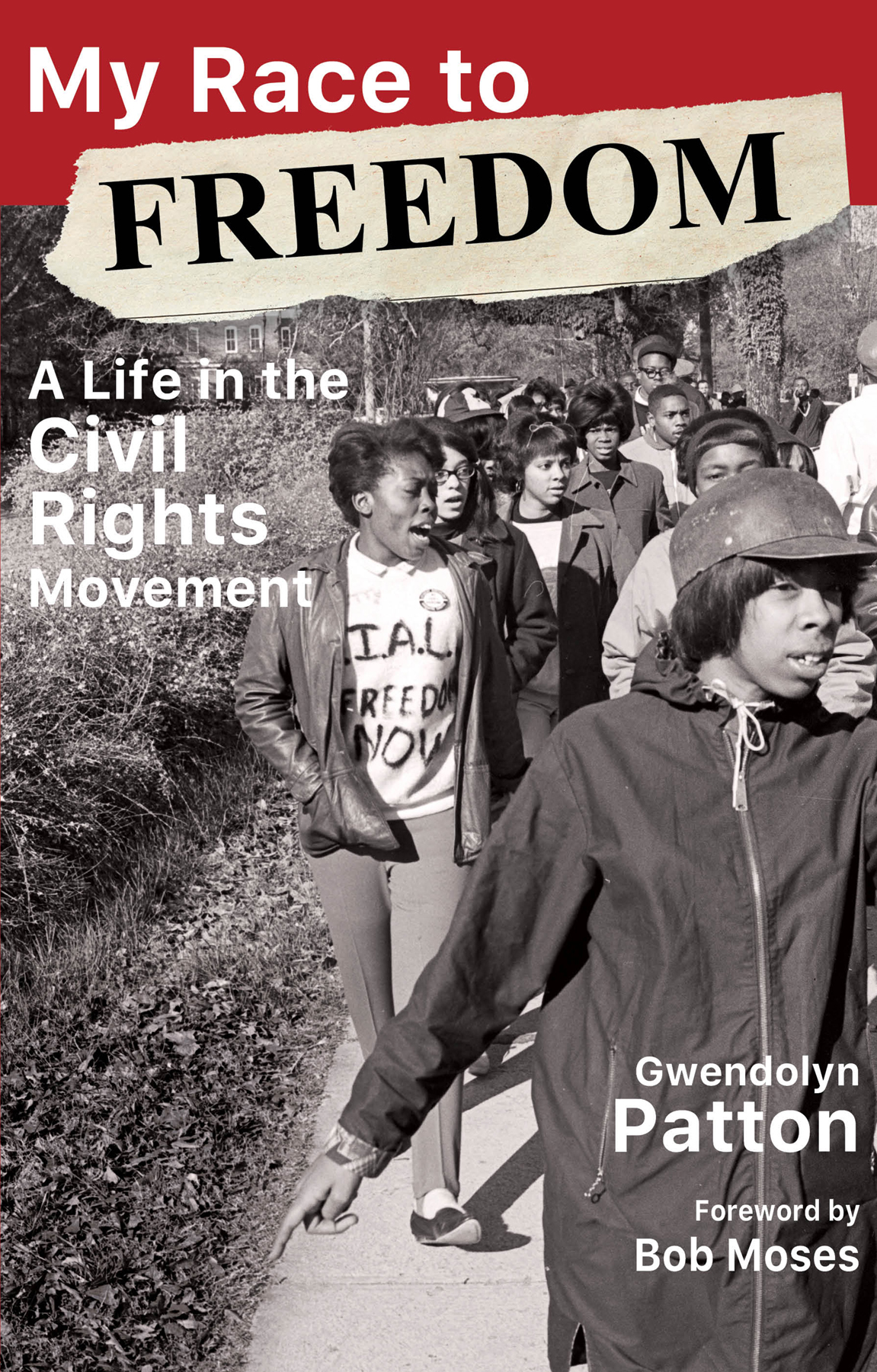Table of Contents
Guide
MY RACE TO FREEDOM
NewSouth Books
105 S. Court Street
Montgomery, AL 36104
Copyright 2020 by Gwendolyn Patton
All rights reserved under International and Pan-American Copyright Conventions. Published in the United States by NewSouth Books, a division of NewSouth, Inc., Montgomery, Alabama.
Library of Congress Cataloging-in-Publication Data
Names: Patton, Gwendolyn M., 1943- author. | Moses, Robert Parris, writer of foreword.
Title: My race to freedom / Gwendolyn Patton ; foreword by Bob Moses.
Description: Montgomery : NewSouth Books, [2020]
Identifiers: LCCN 2020018820 (print) | LCCN 2020018821 (ebook) | ISBN 9781603064507 (trade paperback) | ISBN 9781603064514 (epub)
Subjects: LCSH: Patton, Gwendolyn M., 1943- | Patton, Gwendolyn M., 1943Family. | African American women civil rights workersAlabamaMontgomeryBiography. | African American civil rights workersAlabamaMontgomeryBiography. | Civil rights workersAlabamaMontgomeryBiography. | Montgomery (Ala.)Social conditions20th century. | Detroit (Mich.)Social conditions20th century. | Montgomery (Ala.)Biography. | Detroit (Mich.)Biography. | Patton family.
Classification: LCC F334.M753 P393 2019 (print) | LCC F334.M753 (ebook) | DDC 323.092 [B]--dc23
LC record available at https://lccn.loc.gov/2020018820
LC ebook record available at https://lccn.loc.gov/2020018821
Printed in the United States of America
To my mother (19221958), who, in our too brief earthly time
together, taught me resilience
To my father (19232000), who nurtured me for fifty-seven
years and taught me perseverance
To my maternal grandmother (19041980), who taught me
endurance
To my paternal grandmother (19031983), who taught me that
God will take care of me
To my paternal grandfather (19001979), the embodiment of
solemn piety, who taught me to prayerfully keep the faith
To my brother, Bob: may our sibling love deepen like that of our
fathers and his sister, our Aunt Samella
Contents
BY BOB MOSES
Welcome to a complex portrait of a complex life. Gwen Patton reflects on her life surrounded by all kinds of family, intertwined with a caste system that knew no shame, whiplashed by civil rights organizing and movement events large and small. A life which, on the verge of coming into its own at Tuskegee Institute, deteriorates into an unanticipated, unexpected infliction: tuberculosis.
From January 1, 1963, to January 1, 1964, young Gwen leaves Tuskegee Institute to stay in the Batson Memorial Sanatorium for tuberculosis patients. Isolated from the known world, incarcerated into forlorn, decrepit segregated rooms of the Sanatorium, Gwen refashions a life replete with accurate empathy for her fellow patients, courage to confront hospital administrators, and a deep, deep self-regard.
When Gwen returns to and graduates from Tuskegee Institute, she decides that movement work was legitimate work and that it should be within the mainstream to carry the message for fundamental social change if America was to live up to its creed of participatory democracy.
One such message demanded that the National Student Association (NSA), pay reparations to an affiliated student group, the National Association of Black Students (NABS). Although this and other accounts from those Black Power years are informative, even riveting, in the end the central story line is Gwen herself through the life she exercises with dedication, principle, and an unbending devotion to justice, equality, and the well-being of all people.
The memoir that is My Race to Freedom began two decades ago with journal entries, recollected vignettes, and an extended narrative through Gwen Pattons colorful life as a student, activist, and national organizer. The original manuscript she brought to me around 2007 was almost 2,000 pages long. We decided to split it in half, concluding with her return to Montgomery in 1978, with a brief epilogue telling what had become of many of the family members, friends, and fellow activists she describes in Volume 1. I worked with Gwen on her manuscript for thirteen years, rewriting, smoothing, and tightening her textas much as possible. Finally, in late 2016, she finished proofreading and correcting the final chapters and the epilogue.
Sadly, she did not live to see the book in print. She became ill and was hospitalized in the spring of 2017 and died on May 11 of that year. NewSouth still had considerable work to do in copyediting, designing, and producing the book, but without a living author we set the project aside until 2020, when Bob Moses agreed to write a foreword, and we were able to work with Gwens executor to publish the book.
Gwens was a unique life, split in her early years between Detroit, where she was born, and Montgomery, where her roots were and she spent summers with her grandparents. In many respects, she grew up as a typical teenager. But by her teens, she was caught up in the Montgomery Bus Boycott, and as a college student leader she dove into the civil rights protests around the Selma-to-Montgomery March. She went on to a career as an organizer and teacher. Her story is worthwhile.
RANDALL WILLIAMS
The following pages narrate my sojourn to seek freedom as a Black child/teenager/adult in America. It begins with my family ethos before I was born, and when I entered this world how their racial pride and quest for freedom shaped and informed me and my generation to race to freedom.
Perhaps, some of my readers of all races and ethnicities will see parallels of their stories in mine. Hopefully, we can bond together as Americans to help make this world a better place for all of us to live, work, and play.
ACKNOWLEDGMENTS
Foremost, I want to thank Jesus, the Christ, who promised not to leave me alone. During the fifteen years of writing my memoir and having it edited and published by Randall Williams, an excellent and empathetic editor, and New-South Books, I have had serious bouts of frustration, impatience and doubts. Thanks be to God He tempered my anxieties with His grace. Among many of Gods revelatory blessings, a synopsis of my memoir was published in the 2011 best selling anthology, Student Nonviolent Coordinating Committee Women: Hands on the Freedom Plow. For this I am grateful to my SNCC sisters and editors of love, Martha Prescod Norman Noonan and Faith Holsaert.
I especially want to thank my family, many who have gone to dance with my ancestors since I began writing this memoir. My father (19232000) was my first content editor. He read with delight my initial narrative outline, fleshing out the myriad details of his family upbringing, his southern and northern experiences. He often visited with me for the expressed purpose to help me hone my manuscript. Though he recognized my maturity, admired and through the years supported my Movement commitment, I was still Daddys Little Girl.
Flora Elmore Moore Andry (19292007), my maternal second cousin, was elevated in my eyesight as my big sister when I came to live with her, her sons, Lloyd and Arthur, and mother, Aunt Chick, in Montgomery at the tender age of sixteen. She guided me into lady hood. Though she considered my Movement enthusiastic commitment over the top, she never smirked at my seriousness. Her descriptions of train-mens labor and what it was like for Negroes to ride the train during Jim Crow Montgomery were invaluable.
Despite my painful, teenage encounters by the hands of my step-mother after the passing of my mother, her sister, my Aunt Frances and her children, Betty Jane Wells, Johnny and Judy Whitaker, refreshed my memories of my childhood communityInkster, Michigan. Aunt Frances provided recollections of what Inkster was like in its early development as a hamlet and how my father, her husband, Uncle Herman Smith and others in the 1950s mounted a community movement to transform our hamlet into a city-representative government, which still exists to this day. Betty Jane and her son, Michael, who is a member of Inkster Historical Society, forwarded historical documents that confirmed the transformation. Judy visited, telephoned and emailed me about the factory process of spray-painting a car on the assembly line, a job my father once performed when he worked in the factory. The Smith Family proved and instilled in me that family relations can arise above personal adversity. Though we are in-laws, ex-laws and out-laws, we are all family and should always manifest our love for one another. For this lesson in unconditioned love, I will always be grateful to the Smith Family.
Next page
